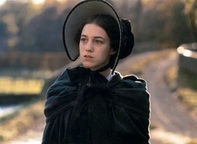
Inaugural Blog Assignment: Narrative Perspective in Jane Eyre
Please return to the handout on narration that I gave you in class on Thursday, 1/9. Since we ran out of time during class, I would like us to finish our discussion here on the blog.As a refresher, here are the questions I posed:
1. How would you characterize Jane as a narrator? Choose two or three adjectives and offer a description of her narrative style, using examples and/or direct quotes from the book in order to support your claim.
2. Writing on Victorian Web, Ph.D candidate Devon Anderson observes that “Jane seems astoundingly strong, rational, reliable, and honest,” yet, in certain passages the reader senses, “an underlying emotional chaos and an impulse to withhold or manipulate lurking within our seemingly reliable narrator.” Elaborate on this claim, using a specific passage from the novel as evidence (you may consult your journals for a passage if you wish).
Your Assignment:
1.In the blog comments, please write a post that combines your thoughts on these two prompts, using quotes to support your claims.
2. Length: 2-3 paragraphs. Must include at least two direct quotes, properly cited.
3. Please also reply to at least one of your classmate's comments.
DUE: Sunday 1/12, by midnight
I look forward to reading your thoughts!
 RSS Feed
RSS Feed